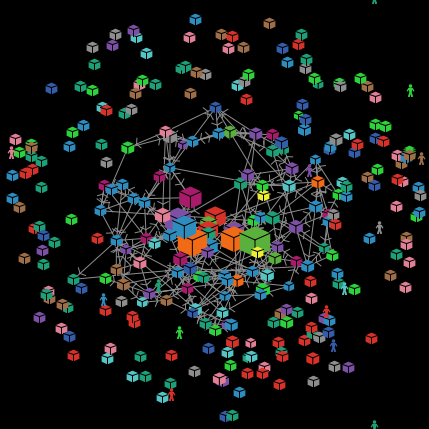Ecological system of Wiki
Содержание |
Wiki as a digital ecological system
Ecologies and ecosystems concepts transferred from the world of biology to the social world in order to explain interrelations between different agents and their environment. The concept of knowledge ecology in modern world is closely linked with an idea of wiki as an ecological system. In this hypertext system different agents create, recycle and reuse various text blocks. We can use the wiki for a better understanding of the principles of sustainability and viability of the learning communities.
Among the variety of ways to organize collaboration activities the most interesting is Wiki. Nowadays wiki is considered the most promising environment for the formation of a network of communication and participation in training activities in which students can use ready-made materials (texts, templates, diagrams, drawings, photographs) to create their own products. In this presentation we evaluate wiki as an digital ecological system.
- Wiki-eco-system. How we can use it?
- Media for creation of objects (text, programs)
- Environment for Research and Learning
- Sample to simulate
- Environment for the breeding and selection of ideas and improving of texts
Media for creation of objects (text, programs)
Environment for Research and Learning
The study of relationships and connections between authors and pages
To visualize the relationships and connections between authors and pages we used GraphViz program. Visualization is based on history of articles editing and allows distinguish groups and communities without leaving the wiki.
Wiki as a bipartite graph
http://en.wikipedia.org/wiki/Bipartite_graph

Sample to simulate
This environment allows to collect data which can be used to assess a viability and a sustainability of the network community. To simulate the ecological wiki system, we used multi-agent environment, such as StarLogo and NetLogo, which can simulate the interaction of many agents.
Wiki as a sample for miltiagent model
References
- Among Doug Blank, Kim Cassidy, Anne Dalke, Paul Grobstein Emergent Pedagogy: Learning to Enjoy the Uncontrollable and Make it Productive http://serendip.brynmawr.edu/sci_edu/emergentpedagogy.html - см. Эмерджентная педагогика
- Patarakin E & Yarmakhov B. (2007) Everyday network culture as an approach to classification issues solution, Educational Technology & Society, vol. 10 N 2 2007
- Resnick, M. (2003). Thinking Like a Tree (and Other Forms of Ecological Thinking). International Journal of Computers for Mathematical Learning, vol. 8, no. 1, pp. 43-62
- Yarmakhov B., Burov V., Patarakin E., Lawmaking 2.0 Computational Social Science and the Wisdom of Crowds (NIPS 2010), Canada

